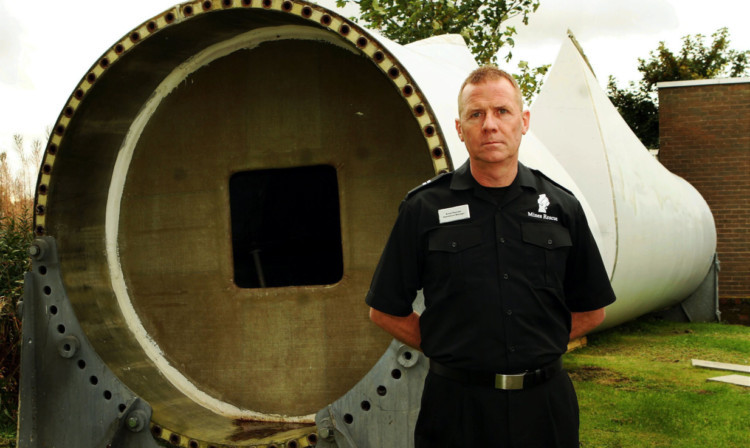A historic Fife company which specialised in rescuing people from deep underground is set to transform itself into a training centre for the renewables industry.
Mines Rescue Service, based in Crossgates, has operated for more than 100 years, responding to emergencies including fires and calls to save people trapped underground.
But the decline in Scottish mining led to the company realising it needed to diversify around 15 years ago. The last Scottish deep mine, Longannet in Fife, closed in 2002.
It started offering a range of specialised health and safety training to blue-chip companies, and counts Scottish Water and Scottish Power as two of its biggest clients.
Now the company, which employs 18 people, is looking to expand into the renewables sector.
“We’ve been very successful at diversifying to where we are now and the next stage is the renewables sector, which is a growing industry, particularly in this part of Scotland,” explained operations manager Errol Parrish.
“We have planning permission to erect a training wind turbine, which will be five metres high, and also a 17-metre-high tower. It’s a huge investment for a company of our size, approaching £100,000.”
Cowdenbeath-based Rippen Steel is constructing the two training facilities. Work will start in the next few weeks and is due to be completed at the end of November.
Major renewables companies have shown interest in courses in a variety of specialist health and safety disciplines, including working at heights and rescue from wind turbines, which are expected to begin next year.
The Fife arm of the company, which also operates at five sites in England, intends to recruit four extra staff as a result of the plans.
“There are other organisations offering this training, but the vast majority of them are based in England,” Mr Parrish said.
“We hope our reputation as one of the leading health and safety providers in the UK will help us attract firms in the renewable sector.”
Last year the company had a turnover of around £10m, of which the Fife training operation contributed £1.8m.
The sites in England still operate as mine rescue centres, but Mr Parrish said the Fife division’s diversification into training was an indication of the future direction of the company as the number of mines in Britain continues to decrease.
“We are investing in this diversification to secure the future for our employees at Crossgates,” he added.
“It is also as an example to our five other UK sites as to the future direction of the company.
“They still provide cover to mines in England and we could be called in if there was a major incident, because we’ve maintained our skills.
“In the past we were a mine rescue station with a training capability. Now we are proud to say we are a training centre with a rescue capability.”
